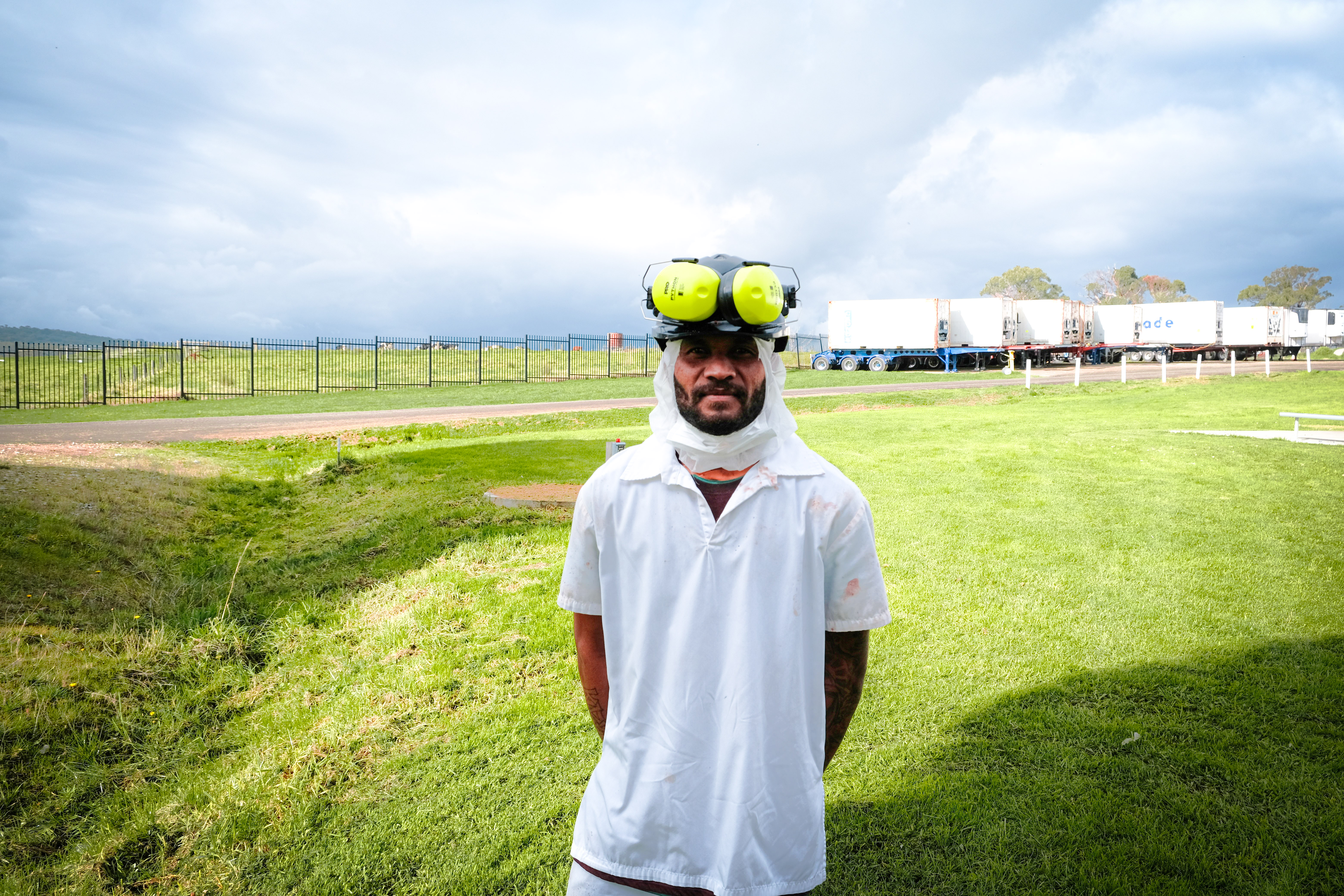Victoria in July can get cold, especially at 5:15 am when Junior starts his day at the local Greenham abattoir in Australia’s Gippsland food bowl.
For the 23-year-old from Malaita Province in Solomon Islands, the frosty Victorian mornings took some getting used to.
Add to this, long days in the chiller, the fast pace of work and the uncompromising standards of an Australian workplace. It was soon clear to Junior and his colleagues that life in an Australian abattoir is not for the faint hearted.
Junior is now several months into his role and quickly progressing to become a skilled member of his team.
“Before we left Solomon Islands, we had our pre-departure training where they talked about safety, hygiene and workplace rules in Australia which helped us to feel more confident before we started our jobs,” he said.
“We heard stories about accidents in meat processing, so we took this advice very seriously.
“When I came here in the first week, I learnt by following the other workers on the floor. By the second week we started moving and handling the livestock and learning how to handle a saw.
“It was hard at first, but when I do it every day it's easier, now I can do my work by myself and confidently.”
Joining the PALM scheme is a huge sacrifice, especially for workers on longer-term visas. But for Junior, who will stay in Australia for up to four years, it was a chance to support his family financially.
“My wife and I plan to build a house and to run a small business like a shop where I can employ some of my family members.
“I also help our extended family with things like school fees for our nieces and nephews. My family is proud of me being here earning money,” he said.
More Solomon Islanders are joining the PALM scheme every year, working not only in abattoirs but also on farms, resorts and aged care homes. Each industry is different, the work can be physically and mentally challenging, and the days can seem very long.
Labour Mobility Director Christina Maoma Marau said that while the PALM scheme provided opportunities to earn money, learn new skills and gain qualifications, people needed to decide if the program was right for them and their families.
“Living and working in Australia is different to Solomon Islands. The pace is fast and there are a lot of rules around safety, which are designed to protect workers and avoid workplace injuries,” she said.
"You will probably earn more per hour but the cost of living in Australia is also higher.
"You will need to budget carefully and remember your goals in going to Australia. And while long-term workers can take paid holiday leave each year, you will need to pay your own way home if you wish to see your family.
“Your job will require you to work five or six days a week at specific times. You will need to start and finish on time, and your meals and breaks will be scheduled.
“It’s important to have a good attitude, show up each day, be willing to learn, and ask questions if you don’t understand something.”
While meatworks can be a physically and mentally demanding industry, there are different roles which require differing levels of physical fitness. Roles are suitable for both men and women and range from working on the slaughter floor to counting and placing packages onto trays and racks, recording information, and cleaning machinery, equipment and containers.
Junior’s advice to others wanting to join the PALM scheme is simple: keep fit, be mentally prepared and stay in touch with loved ones back home.
“It is not easy working in Australia, you have to work hard and have a strong mind before you come here,” he said.
“If you are not used to working then it would be very difficult and dangerous.
“It’s also hard being away from family. I talk to them every day. I miss them, especially my wife but Solomon Islanders are strong workers and well disciplined. I know that everything will be alright for us.”

